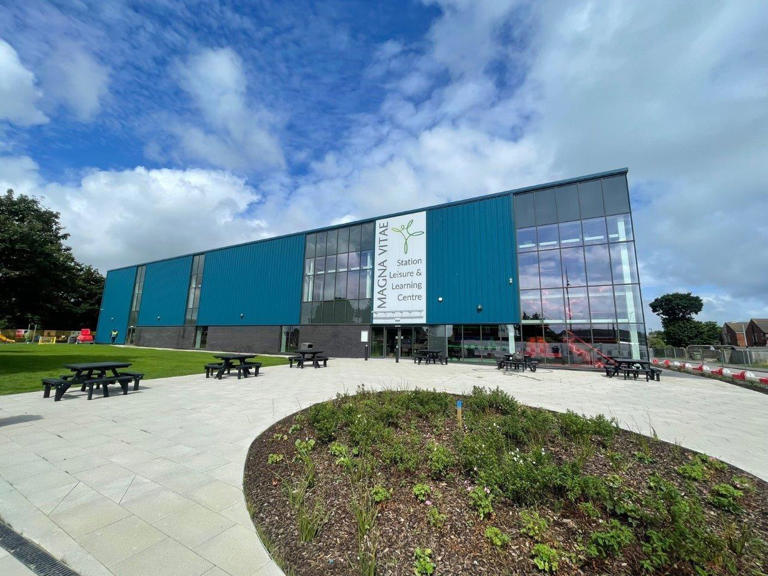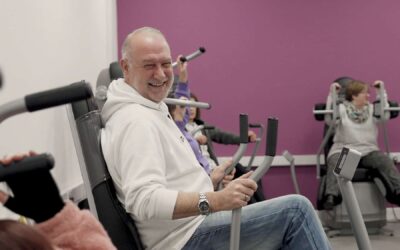Max Associates decided to help raise money again for Motor Neurone Disease Association (MNDA) a…

The sport and physical activity sector publishes its policy calls for the 2024 general election
Max Associates is one of the 29 physical activity sectors organisations who contributed their policy ideas to create The Road to the 2024 Election Manifesto – over 100 policy ideas for sport, physical activity and wellbeing which Sports Think Tank published today.
The document will be shared with leading political parties to present them with the sector’s views and ideas ahead of the general election in 2024.
The 165 page document presents policy calls, ideas and proposals from 29 physical activity sector organisations. The Sports Think Tank asked each organisation to create resource-neutral policies which they would want the UK’s political parties to champion in their forthcoming manifestos and first 100 days in office.
Lisa Forsyth, Managing Director of Max Associates has provided advice about planning and innovation for public sector leisure facilities. Lisa said:
“We are delighted to use our expertise to contribute to this important piece of work. Our chapter outlines challenges and recommendations for two priorities which are inter-related. The first is to enable joined up planning of swimming, sports, and leisure centres across the public sector, specifically education and local authority sites. This will reduce duplication of facilities and enable innovative and needs based facilities being delivered in local communities. The second is to increase the number of children with physical literacy and swimming skills, to enable physical activity habits to develop at a young age. We hope our guidance will aid the overall objective to increase activity levels and reduce the cost of providing publicly accessible swimming, sports, and leisure centres.”
The policy calls range from cutting red tape, raising standards and suggestions on how to redirect existing funding to more specific proposals – such as elevating the status of PE within the curriculum, include active environments in planning policies and changing the Highway Code.
Many of the contributors also call for greater governmental intervention to help drive much needed change in the sector itself. There are proposals to introduce new legislation and more regulation to make certain policies mandatory and improve the performance of the sector. Addressing the deep-seated inequalities across the sector is another common theme among the proposed policies, as are ensuring better provision for children and young people, embedding activity in Further Education and moving the sector towards health and wellbeing, especially through prevention in integrated care systems.
Commenting on the publication of the document, Kim Leadbeater MP, Chair of the All-Party Parliamentary Group for Sport, said: “It is not hyperbole to claim that physical activity remains one of the most under-used resources we have at our disposal when tackling some of our most persistent challenges, from easing the pressures on the NHS, tackling crime and improving economic productivity to finding ways to level up.
“That’s why this is a crucial document. It brings together ideas, proposals and calls from across the sport, physical activity, and wellbeing sector, making for a fascinating and inspiring read. From simple ideas that could be easily implemented to more wide-reaching changes intended to shift the dial on public discourse, there is plenty of food for thought.
“Perhaps most importantly – and this is where political parties should prick up their ears – the contributors were challenged to make each policy call cost-neutral. In these economically trying times, this aspect alone should make the document you have in your hands essential reading.
“Another aspect that adds value to this document is the sheer variety of the ideas within it. From activating primary school children to engaging the elderly and from community sport to elite performance, nearly every aspect of sport, wellbeing and physical activity is covered.”
Andy Reed OBE, founder and director of Sports Think Tank, said: “We know there is no shortage of reports, ideas and policy asks produced by the sector. They all add to the case and are very welcome.
“But we felt there was still some space for organisations who don’t always get heard but have something useful to add. It also has become clear that the sector will not be able to rely on additional government spending. Indeed, the predicted department spend is likely to fall during the current cycle. So, we asked our contributors to produce policy ideas that remain resource-neutral for the government over the budget cycle. While it is easier to ask for large policy wins, with resource implications, we felt using the principle of marginal gains – so well used in sporting circles – was a fresh, much-needed approach.
“We aim for the work we have done to collect these policy ideas to be the start of an iterative process involving both the contributors and policy makers.”
The organisations who contributed their policy ideas ranged from national governing bodies of sport, universities and colleges, charities, industry bodies and consultants to architects and commercial companies. The full list of contributors is: Youth Sport Trust, Play England, Activity Alliance, Women in Sport, Sported, UK Sport, The Active Partnership Network, Sporting Equals, Loughborough College, UK Coaching, StreetGames, Intelligent Health, British Judo Association, British Canoeing, Loughborough University, Active IQ, Sportily, Sport for Development Coalition, State of Life, David Morley Architects, Max Associates, SLC, Fitmedia, Data Sport 80, Oaks Consultancy, Farrars Building Chambers, Sports Communications, Henham Strategy.
– END –
Editors’ notes: Established in 2011 and based in London and Loughborough, Sports Think Tank aims to create a vibrant sports, physical activity and recreation sector debate that challenges and creates new solutions based on practical knowledge and evidence. https://www.sportsthinktank.com/




